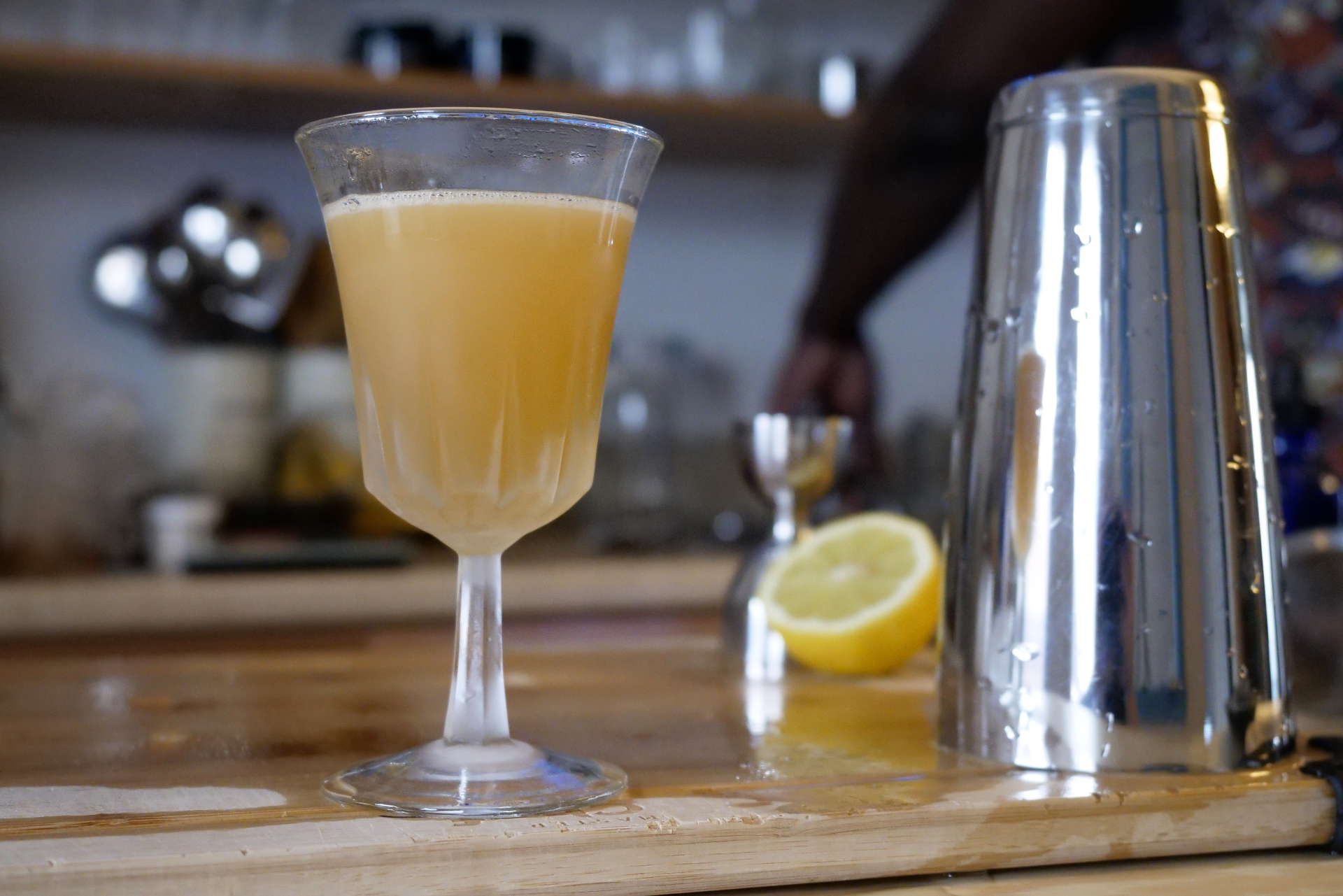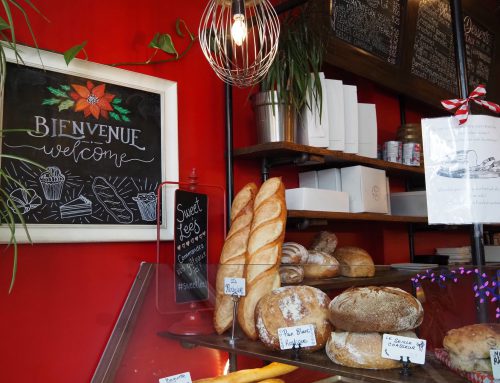BY Diona-Rosan Macalinga & Amanda Polese
When Kevin Demers opened the Parliament Pub & Parlour, he didn’t think he would have his bar shut down less than a year after opening. But that’s just what happened when the first COVID-19 wave hit the province and non-essential businesses had to suspend activities near the end of March 2020.
Since then, bars spent most of the year under lockdown, but Demers, along with fellow Montreal bar owners Toby Lyle and Andrew Whibley, are trying to find a way to wipe the dust off the liquor shelves.
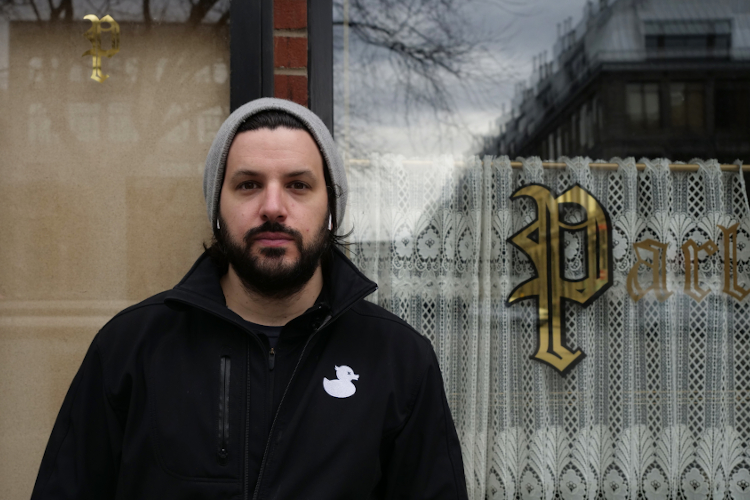
Old Montreal bar owner Kevin Demers pictured in front of one of his businesses, the Parliament Pub & Parlour, located on Place d’Youville. Photo by Diona-Rosan Macalinga.
“We’re going on a year where most standard bars and restaurants that are not delivery-focused and or based had no revenue coming in for the last year. It’s just been working at a loss,” says Demers.
They started a petition for the delivery and takeout of cocktails and other spirits-based drinks with an association they formed for the purpose of this initiative, the Association pour spiritueux à emporter Québec (ASEQ). Since its launch in January, the petition has garnered thousands of signatures.
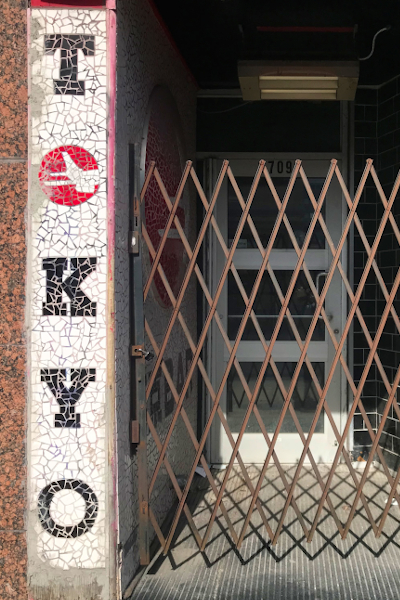
After more than 20 years in business, one of Montreal’s most popular nightclubs Tokyo Bar on St-Laurent Blvd. closed their doors in November 2020. Photo by Diona-Rosan Macalinga.
“[Cocktail delivery and takeout] is the easiest thing for us to at least try to move and try to just generate some form of income,” says Demers.
The ASEQ argues that the delivery and takeout for spirits and cocktails will allow bars and restaurants to survive another year of closure without having to rely on “inadequate government” subsidies. However, the plan requires legislative changes.
According to CJ Hélie, the executive vice president of Spirits Canada, there are many safety precautions that must be taken into consideration. Along with ASEQ and other Quebec bar associations, Spirits Canada discussed some of these safety measures with the Quebec government such as the material of the takeout container and the process of mixing and shipping these sealed alcohol beverages.
The Quebec National Assembly did adopt Bill 72 in December of 2020, which allows restaurants to deliver alcohol with a takeout meal using third party services such as Uber Eats and DoorDash. While the adoption of Bill 72 brought some hope to local restaurants and bars, the excitement was short-lived when bar owners realized it was limited to wine and bottled beer.
Amélie Paquet, press officer to the Minister of Public Security, says that minister Geneviève Guibault is looking into the possibility for the delivery of premixed spirits-based cocktails.
“This would require legislative amendments and could not be done in the short-term, but we are not closing our doors to this possibility,” she says.
Joyce Tremblay, spokesperson for the Régie des alcools, des courses et des jeux (RACJ), says that the RACJ installed a new process so that bar owners can deliver wine and non-draft beer on Dec. 18, 2020. The process requires converting their bar permit into a restaurant permit through the RACJ and the delivery or takeout of these alcoholic beverages must still be accompanied with a meal.
Meanwhile, other provinces have already allowed bars to deliver cocktails and spirits such as Ontario, Manitoba, and British Columbia.
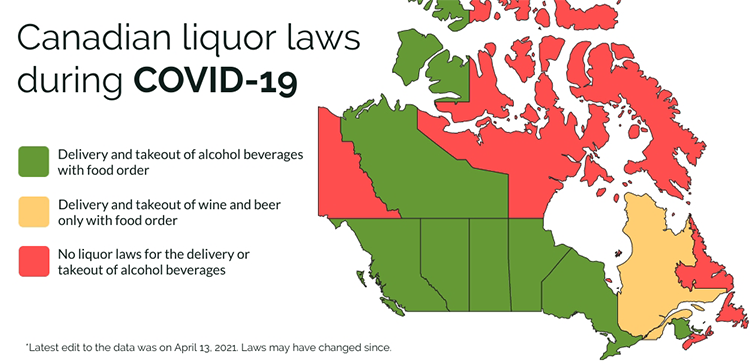
Map indicating Canadian provinces that allow for the delivery and takeout of alcoholic drinks. Media by Diona-Rosan Macalinga.
“We’re talking about a sealed container. You’re not changing your drinking and driving laws, you’re not changing your public consumption laws,” said Hélie. “All you’re doing is allowing somebody to have their favourite drink at home with their favourite take-out meal.”
The idea for cocktails to go and delivery was taken from American liquor laws that were approved in the early stage of the pandemic. The Distilled Spirits Council of the United States (DISCUS), Spirits Canada’s U.S. counterpart, has addressed some concerns, such as the possibility of drinking while driving, on Sept. 1, 2020.
According to chief Steven Casstevens, president of the International Association of Chiefs of Police, there has not been any increase of open container violations since cocktails to-go were implemented in Illinois.
“The Governors of the Highway Safety Association (GHSA) to this point has not really heard any concerns from traffic safety officials across the country,” says Jonathan Adkins, the executive director of the GHSA.
The decline in revenue in the bar and restaurant industry is a national problem. Yet, Statistics Canada COVID-19 2021 first quarter report claims that Quebec has the highest rate of bars and restaurants experiencing a decline in revenue of 40 per cent or more.
“Yes, you have big corporate entities in that space, chains and other things. But there is a huge amount of small independent businesses,” says Hélie.
Bars who would regularly host live shows have also been economically impacted. Video by Amanda Polese.
“[The Ministry of Economy and Innovation] (MEI) is aware of the economic impact related to the closure of restaurants and bars,” said MEI spokesperson Jean-Pierre D’Auteuil.
The Quebec government put in place financial assistance to support these businesses during the pandemic.
According to D’Auteuil, the Assistance for Businesses in Regions on Maximum Alert (AERAM) granted over 176 loans to bars and nightclubs in Montreal. For restaurants, nearly a thousand loans were granted totaling over $31 million with the Emergency Assistance for Small and Medium-Sized Businesses (PAUPME) and approximately $5.7 million with the AERAM.
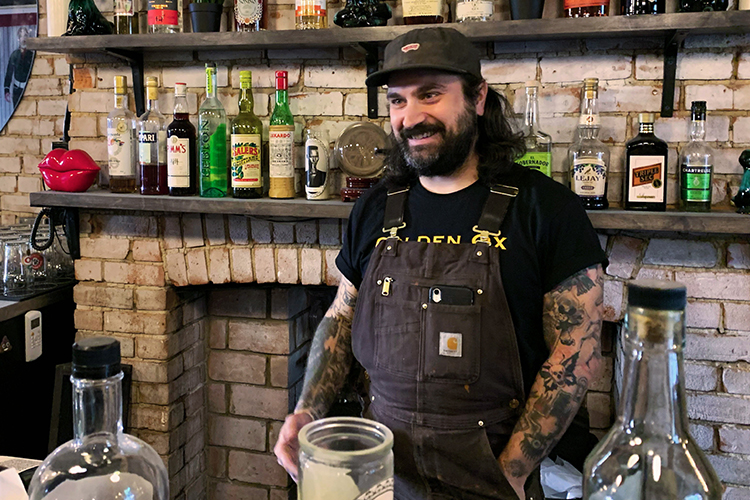
Sergio Da Silva stands in front of his fully stocked bar. He considers himself lucky compared to other bar owners, since he is able to support himself with help from the government. Photo by Amanda Polese.
Kevin Nitcheu, former bartender at The Coldroom, fears that many bar owners might not be able to keep their businesses operating if restrictions were to last.
Statistics Canada reports more than a quarter of Canadian food and drinking businesses are estimated to be considering closing or filing for bankruptcy protection within the next 12 months.
By implementing cocktail takeouts and delivery, Nitcheu thinks that it will help these businesses survive during the pandemic.
“People will get to drink from their favourite bars. Not at the physical place, but at least they’re going to drink it at home and it’s going to be the same quality that they had when they were able to go out,” said Nitcheu.
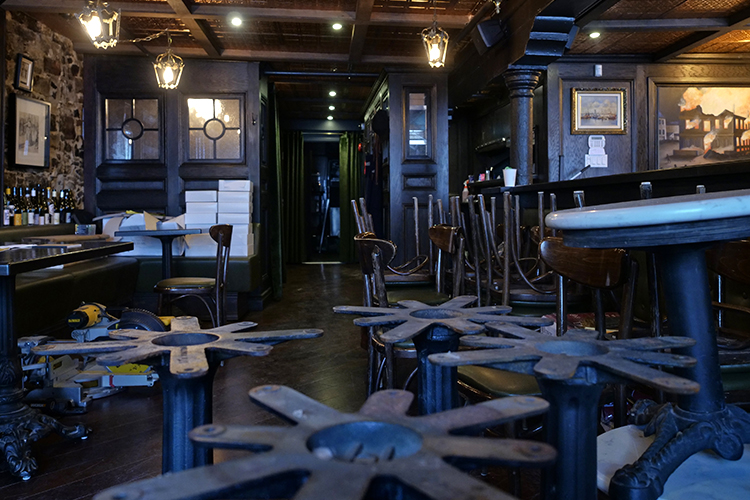
Barely one year since its opening, the Parliament Pub & Parlour in Old Montreal had to suspend operations for a second time due to the COVID-19 pandemic. Photo by Diona-Rosan Macalinga.
Demers spoke about starting a microbrewery beer store with his former employees to diversify his business portfolio. The store would be under a grocery permit, which will allow him to run an essential service and stay on his feet while the topic of the reopening of bars remains on the back burner.
As for the ASEQ, they hope to bring up the idea of wholesale liquor pricing to liquor permit holders in Quebec.
